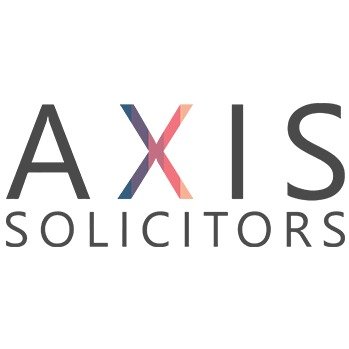Best Tax Lawyers in Manchester
Share your needs with us, get contacted by law firms.
Free. Takes 2 min.
List of the best lawyers in Manchester, United Kingdom
About Tax Law in Manchester, United Kingdom
Tax law in the Manchester, United Kingdom is administered by the HM Revenue & Customs (HMRC) and is structured around several key areas, including income tax, corporation tax, capital gains tax, inheritance tax, and VAT. This vast field that manages public revenue for both individuals and businesses is subject to continual modifications and complex regulations, therefore having an understanding of the UK's tax law is crucial to ensure compliance.
Why You May Need a Lawyer
Understanding and navigating tax laws can be a formidable task. You may need a tax lawyer if you are setting up a new business and need advisory on structuring your tax payments, dealing with tax disputes, preparing for an HMRC audit, dealing with inheritance tax matters, or looking for ways to minimize tax liability within legal parameters. Additionally, having a tax lawyer becomes invaluable for complex transactions like mergers or large-scale acquisitions.
Local Laws Overview
In Manchester, the local tax laws are consistent with the rest of the UK. However, local businesses may also need to understand and comply with business rates, which are the way that those who occupy non-domestic properties contribute towards local services. Additionally, council tax, a local taxation system with domestic rates, is applicable on most domestic properties including houses, flats, and the like. Moreover, stamp duty land tax may be payable on land transactions.
Frequently Asked Questions
1. What is VAT and who does it apply to?
VAT (Value Added Tax) is a type of indirect tax that is enforced on most goods and services supplied by registered businesses in the UK. Many businesses, with a taxable turnover above the VAT threshold, must register for VAT.
2. What is council tax?
Council tax is a local authority tax levied on domestic residences. The amount varies based on the valuation band of your property and the prevailing rates set by local councils.
3. What is corporation tax?
Corporation tax is levied on all the profits of UK-resident companies, including profits from worldwide sources.
4. Are there any exemptions from inheritance tax in the UK?
Yes, there are certain inheritance tax reliefs and exemptions in place. For instance, transfers between spouses or civil partners, transfers on charitable donations, and transfers of qualifying businesses or agricultural property may be exempt or benefit from relief.
5. Can I legally reduce my tax liabilities?
Yes, reducing tax liabilities legally is possible but requires strategic planning. Methods can include utilizing personal tax allowances, pension contributions, charitable donations, investments and the like.
Additional Resources
Apart from reaching out to a tax lawyer, individuals can seek assistance from organizations such as the Chartered Institute of Taxation, the Association of Taxation Technicians and websites like the Money Advice Service. For businesses, resources like the Manchester Chamber of Commerce may offer valuable advice. Additionally, HMRC's website provides a wealth of information and online services.
Next Steps
If you find yourself needing legal assistance in tax, it may be a good idea to engage the services of a tax lawyer. Finding a lawyer with extensive knowledge in UK tax law can be achieved through law firms in Manchester, legal advice centers or through the Law Society. Prepare a list of questions and documents related to your case for your initial consultation.
Lawzana helps you find the best lawyers and law firms in Manchester through a curated and pre-screened list of qualified legal professionals. Our platform offers rankings and detailed profiles of attorneys and law firms, allowing you to compare based on practice areas, including Tax, experience, and client feedback.
Each profile includes a description of the firm's areas of practice, client reviews, team members and partners, year of establishment, spoken languages, office locations, contact information, social media presence, and any published articles or resources. Most firms on our platform speak English and are experienced in both local and international legal matters.
Get a quote from top-rated law firms in Manchester, United Kingdom — quickly, securely, and without unnecessary hassle.
Disclaimer:
The information provided on this page is for general informational purposes only and does not constitute legal advice. While we strive to ensure the accuracy and relevance of the content, legal information may change over time, and interpretations of the law can vary. You should always consult with a qualified legal professional for advice specific to your situation.
We disclaim all liability for actions taken or not taken based on the content of this page. If you believe any information is incorrect or outdated, please contact us, and we will review and update it where appropriate.








